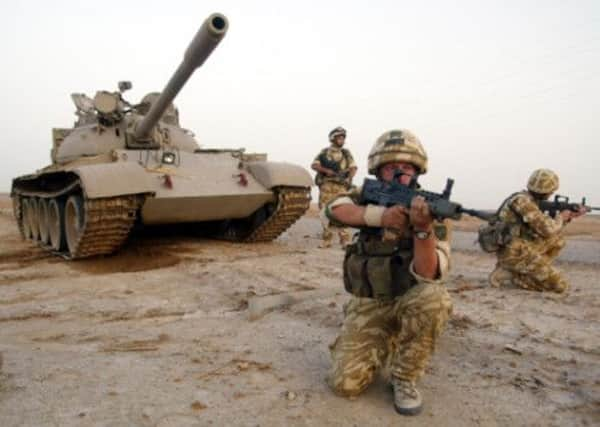A war with few victories to celebrate amid the lands in flames


On my first day in Iraq I saw a bus full of passengers being held up by armed bandits, I witnessed an American tank firing across a busy motorway, and I had to break off an interview when my translator told me two men were discussing whether to kill me.
And the war was supposed to be over. When I arrived in Iraq as a reporter in the summer of 2003, the statue of Saddam Hussein had been pulled down and President George W Bush had made his famous “Mission Accomplished” speech. In theory, the country was under control. But Baghdad was a terrifying place.
Advertisement
Hide AdAdvertisement
Hide AdIf you forgot to lock your car doors, carjackers would get in next to you at a red light, shoot you dead and dump your body in the streets. No one knew the murder rate, but the morgues were overflowing.
While we were still discussing whether the war should have happened, Iraq was collapsing into lawlessness and violence, and the Americans and British seemed powerless to prevent it. Now, 10 years on, we’re still debating whether the war should have happened. In that time, Iraq has suffered an even more devastating civil war which left its society divided and scarred. The effects are still spreading across the region, into neighbouring Syria.
It was the suicide bombing at the United Nations’ Baghdad office which captured the headlines in the summer of 2003. But the assassination of a prominent Iraqi Shia cleric days later would arguably prove more significant: the insurgents weren’t just targeting Westerners, they were killing Iraqis.
The majority of Iraqis were Shia Muslims, who had long been oppressed under Saddam, while the Sunni minority were in control. Now the Shia wanted to assert themselves – but the Sunni insurgents wanted to stop that at any cost.
Advertisement
Hide AdAdvertisement
Hide AdIraqi society was dividing and the battle lines were being drawn for civil war. But the Americans and British were too busy fighting for their own survival to do much about it.
In March 2004, the Shia held their annual pilgrimage to Karbala, which had been banned under Saddam, for the first time in decades. A million people streamed into the small city. I was in the main street when I got unnerved by the crowds and ducked into a side alley.
It was a lucky attack of nerves: moments later there was a muffled explosion and screaming from where I’d been standing. The insurgents had fired a mortar into the middle of the crowd. In less than an hour, more than 170 were dead.
By the time the civil war began, both Sunnis and Shia were battle-hardened veterans, who had fought street by street against far better armed Western troops.
Advertisement
Hide AdAdvertisement
Hide AdA headless body was found hanging from a bridge in Baghdad. Shortly after a video emerged of Nick Berg, a young American businessman who’d come to work on reconstruction, held down by masked men while he was beheaded with a knife. The kidnapping crisis had begun.
Anyone who worked for the Americans, even as a cleaner, was targeted. Suicide bombers drove car bombs into people queuing for work. The small Iraqi Christian minority got letters pushed under their doors warning them to leave the country or be killed.
Iraq was dividing on partisan lines: the Kurdish north, the Sunni centre and the Shia south. But Baghdad had always been mixed, and it was dividing neighbourhood by neighbourhood. Iraqis could be killed for living in the wrong part of town, working for the wrong people, driving down the wrong street.
It was clear the Americans and British would not stay forever, and the Iraqis were getting ready for the battle for control once they were gone.
Advertisement
Hide AdAdvertisement
Hide AdIf the civil war appears to be over in Iraq today, the country is still riven by the same divisions. As many as four million people are believed to have been displaced from their homes. Reliable estimates put the total death toll since 2003 at more than 100,000.
And now across the border, neighbouring Syria is being torn apart by its own civil war. It’s not just the government forces of President Bashar Assad against the Syrian rebels, it’s Sunnis against Shia again. Assad and his senior regime officials come from a Shia minority, and the same al-Qaida supporters who flocked to Iraq are now streaming into Syria to join the fight.
Ten years on, we’re still asking whether the war should have happened, while the Middle East is in flames.
Justin Huggler’s fictional novel inspired by his experiences in Iraq, Burden Of The Desert is out on March 18, priced £12.99.